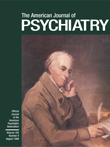The editors of this contribution to the Essential Papers series faced the formidable task of selecting 20 papers that, collectively, might justify its ambitious title. In fact, there are numerous recent texts that aptly review current knowledge about obsessive-compulsive disorder (OCD). Stein and Stone did not seek to compete with those books. Instead, as should be clear from a quick perusal of the table of contents, this volume is heavily skewed toward psychoanalytic theory, thus emphasizing a historical perspective. Still, it did surprise me that, on noting the accelerated gains in OCD research during the past few years, the editors chose not to include any paper published more recently than 1993.
The body of the book is divided into three sections: Classical Psychoanalysis, Psychological Research, and Neuropsychiatric Approaches. These core contents are preceded by Stein's preface, which nicely sets the stage for the arrangement of works to follow, and Stone's introduction, which represents a scholarly review of pre-twentieth-century OCD history. Stein and Stone collaborated on the epilogue, which serves to summarize and integrate the amalgam of individual chapters while acknowledging the limitations, if not idiosyncrasies, of the selection process they applied. It is within these sections framing the contents that Stein and Stone reveal their own breadth of expertise on these topics, making at least passing reference to numerous critical scientific highlights and emerging concepts relevant to the field of OCD.
The subject matter of section 1 is often reduced to a single chapter or, more typically, a paragraph in recent reviews of OCD. Here the reader is provided eight papers regarding classical psychoanalytic theory and OCD—including three by Sigmund Freud and one by Anna Freud, intermingled with works by Ernest Jones, Karl Abraham, Peter Sifneos, and Leonard Salzman. I expect that different readers will respond very differently to this section. Stein wonders (rhetorically) whether “such papers.are mere historical curiosities.” Empiricists may be frustrated by the rambling presentation of theories accompanied by limited structure for hypothesis testing. Indeed, although there is some mention of it, the lack of data to support the efficacy of psychoanalytic approaches in the treatment of OCD should have been further underscored. This section illustrates the early struggle with terminology that actually remains unresolved today. In this context, some greater emphasis regarding the distinction between OCD and its namesake among the personality disorders, as well as a historical account of evolving terminology across the versions of DSM, would have been most instructive. Nonetheless, I thoroughly enjoyed the case material—hammering home the heterogeneity of OCD juxtaposed with its ageless visage, which has been almost invariant across centuries. There is also much to recommend these works aside from their pertinence to OCD; for instance, Jones's discussion regarding the psychology of hate is wonderful.
Section 2 contains five papers on psychological research. Joseph Sandler and Anandi Hazari present a visionary study of the classification of obsessional character traits and symptoms that employs factor analytic techniques; this approach has recently returned to the fore, promising new insights regarding subtypes of OCD. One fine paper by Lewis Judd is intended to cover OCD in children; another by Heinz Hartmann presents an interesting paradigm for investigating the phenomenon of “incompleteness” experienced by OCD sufferers. Behavioral therapy for OCD is addressed by means of a single paper by Stanley Rachman and colleagues; although an appropriate choice if limited to just one, this seems inadequate coverage for perhaps the most effective type of intervention available. In particular, an account of emerging research about behavioral therapy in children and adolescents with OCD would have been appreciated. Similarly, Paul Salkovskis' brilliant paper on cognitive therapy could have been supplemented by others.
Section 3 contains seven papers on neuropsychiatric approaches. Works by Paul Schilder as well as Steven Wise and Judith Rapoport present early neurobiological models of OCD, introducing critical concepts regarding its relationship to other neurological disorders and the hypothesized role of the basal ganglia in its pathophysiology. Similarly, the paper by Thomas Insel and Joseph Zohar is a classic in which a serotonergic model of OCD is proposed. A review by Michael Jenike regarding pharmacological treatments for OCD is also outstanding for its time (1992); however, it is difficult to understand why this paper was selected because more recent works would have been more current and thus more thorough for the reader of today (e.g., newer serotonergic medications and important information regarding augmentation strategies were not yet available). The landmark functional neuroimaging paper by Lewis Baxter and colleagues is an ideal choice, illustrating regional metabolic abnormalities associated with OCD as well as characteristic changes following successful treatment. One might have expected analogous papers conveying important structural findings in OCD as well as neuropsychological studies. An excellent paper by Susan Swedo and colleagues demonstrates the longitudinal course of OCD with emergence in childhood. Readers might have been well served if this had been augmented by one of the groundbreaking papers by the same research group regarding potential autoimmune mechanisms underlying OCD. Similarly, seminal papers reporting family-genetic research are conspicuous by their absence. Finally, since the concept of a spectrum of OCD and related disorders has been championed by Eric Hollander and his colleagues, it seems fitting that the last paper, by Stein and Hollander, address this topic.
In summary, there is much to recommend this book to an avid reader interested in OCD through the ages. However, if a clinician, investigator, or layperson could have but one book about OCD, I would not recommend this one; so, in that sense, the volume is not “essential.” Still, as a second book on the subject it is likely to complement other sources well. Psychiatry in general, and psychoanalysis in particular, has a rich tradition of seeking to understand the present based on a richer appreciation of the past. The form and content of this book exemplify that tradition. Nonetheless, pragmatic consumers will inevitably prefer to focus on the here and now.

